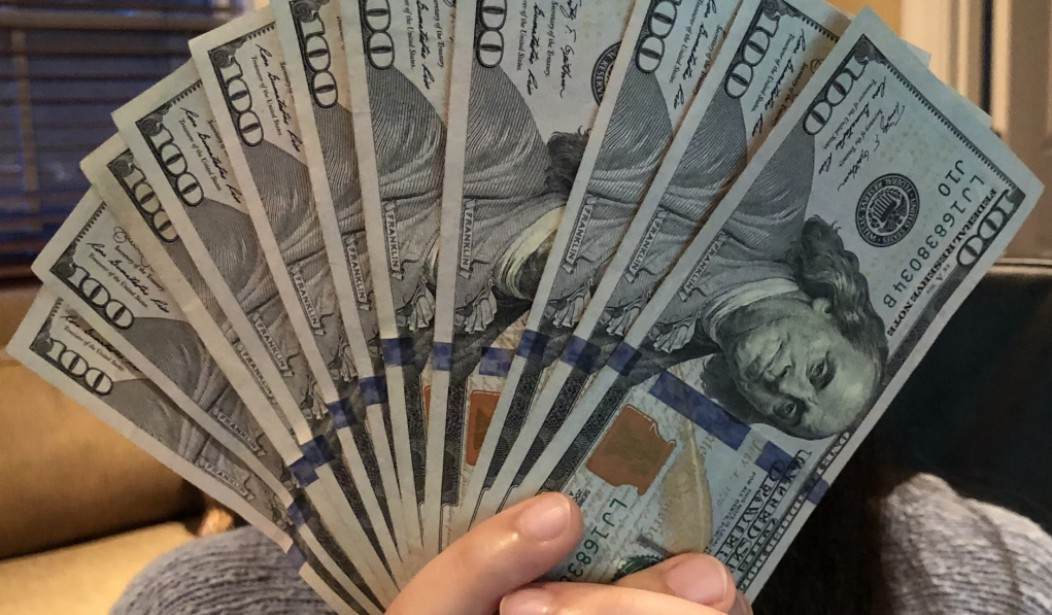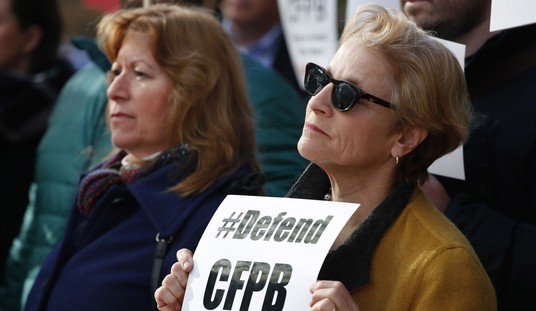Universal Basic Income (UBI) became a more prominent topic of discussion during the 2020 presidential campaign when then-candidate Andrew Yang championed the policy.
The idea of having the government shell out a monthly payment to low-income individuals, and later all individuals, fascinated many who had not considered such a move. However, the concept also received well-deserved criticism based on moral grounds and concerns about the efficacy of such a policy.
Since then, various cities across the country have begun experimenting with basic income programs tailored for families living in poverty with mixed results. Harris County, Texas, is reportedly bringing back a basic income program for low-income residents.
Hoping to evade another legal challenge from the state of Texas, Harris County officials on Thursday passed a new, more stringent anti-poverty program to replace the shuttered “Uplift Harris” program.
Earlier this spring, Harris County had been set to commence a long-previewed guaranteed income program providing 500 low-income families with checks of $500 for 18 months when Texas Attorney General Ken Paxton sued to stop the rollout in its tracks. Now, months later, a new program aptly titled “Uplift Harris 2” replaces the mailed checks with county-issued debit cards that restrict how the $500 can be spent to predetermined categories. The new restrictions are meant to circumvent a Texas court’s determination that the original program was too broad, and that the government could not directly divert public funds to private citizens, Harris County Judge Lina Hidalgo said. Harris County commissioners voted 4-1 to approve the new program, with Commissioner Tom Ramsey voting against it.
“That’s not the spirit of this program…but we do think it will help the families,” Hidalgo said of the change, adding that if the program gets tied up in court again the funding would go to organizations already supporting people in poverty.
Although the program is set to go into effect, Hidalgo warned participating families that she didn’t want to “get anybody’s hopes up.”
“We wouldn’t have gone into litigation if the state had spoken up earlier,” Hidalgo said of Paxton’s decision to challenge the program nearly a year after it had first been announced. “What that says to me...is that they’ll possibly want to fight it again.”
This effort mirrors others in cities like Los Angeles, Atlanta, Chicago, Denver, and several others to address poverty.
Proponents argue that taxpayer-funded basic income programs are the best way to pull people out of poverty and alleviate the financial burdens many Americans are experiencing – especially amid economic woes and staggering inflation. They also contend that in an era of automation taking jobs, it is a valid way to ensure that people aren’t falling by the wayside because they are replaced by technology.
On the other side of the coin, critics assert that such programs might sound promising but will encourage people to work less, or not at all. They also point out that expecting the government to shell out cash every month to everyone, regardless of whether they are working, is unrealistic.
The basic income concept has been tested in various regions around the world. Several of these experiments have produced less than stellar results.
Let’s start with Finland, whose government conducted a UBI trial between 2017 and 2018, where 2,000 unemployed people were given a monthly payment with no strings attached. Initially, people hailed it as a success, but it ended prematurely.
Those opposing the initiative pointed out that it did not significantly improve employment rates, which was supposed to be a vital objective of the program. Others argued that UBI undermined the country’s existing social security system. In the end, the financial strain and lack of a clear positive outcome led to the government canceling the initiative.
There were similar results in Ontario, Canada, which launched a UBI pilot in 2017. This program was canceled 15 months into its execution. It was originally intended to last for three years. The government terminated the program, citing the high cost of the endeavor. The experiment showed that UBI could be prohibitively expensive on a larger scale, especially when it replaces other social welfare programs.
The Ontario experiment was a particularly generous version of a UBI. Eligible individuals could receive $17,000 (Canadian; about 13,000 U.S. dollars today) minus half of any earned income. A couple could receive $24,000. And people with disabilities could get as much as $23,000.
For the Ontario pilot, only low-income folks participated, and their benefits replaced unemployment insurance, the state pension and disability payments.
The government cited the program’s high cost when announcing the termination. This shouldn’t be a surprise. A similar program in the United States with a 50 percent marginal tax on earned income would cost about $250 billion per year if operating nationwide (assuming no adverse consequences of taxation). Get rid of the tax, and it would cost just shy of $1 trillion per year.
Lastly, there are also the programs tried in the 1960s and 1970s that were a precursor to the current version of UBI. In trials held in New Jersey and Seattle, the government provided guaranteed income to families. The results showed that recipients tended to reduce their working hours, which seemed to show that these programs disincentive work.
The bottom line is that expanding the scope of government in this fashion will always produce more problems than solutions. Taking money from hardworking taxpayers to redistribute it to others is not only immoral, it does not help those experiencing poverty.
The reality is that if folks know they will get a monthly stipend from the government, they will work less. Indeed, some are already doing this using our existing welfare system. I wrote recently about the case of a young artist who refused to get a paying job so she could work on her art. Yet, she was taking food stamps to help pay for her passion even though she could have worked and was also receiving support from her parents.
The notion that the state is the ultimate solution to issues like poverty is the type of thinking that has allowed the government to grow even larger and more intrusive. As long as people are dependent on the government, they are still poor because they are not free from its influence.













